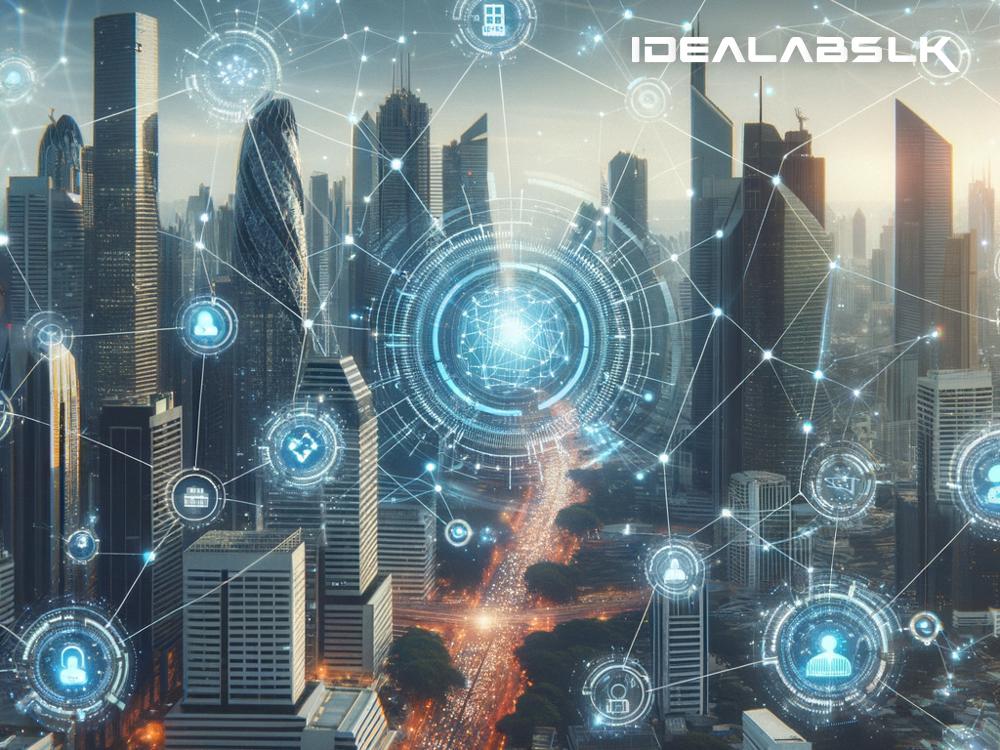Blockchain and AI: Paving the Way for Smart Real Estate
In the fast-evolving world of technology, two buzzwords consistently steal the spotlight: Blockchain and Artificial Intelligence (AI). Both have been heralded as revolutionary on their own, but together, they're set to redefine industries far and wide. Among these, real estate, an industry traditionally slow to embrace change, stands on the brink of a major transformation. Let's dive into how Blockchain and AI are teaming up to create the future of smart real estate.
Simplifying the Complicated: Blockchain in Real Estate
Imagine buying a house with the ease of ordering a book online. Sounds far-fetched? Not with blockchain technology. At its core, blockchain is a system of recording information in a way that makes it difficult or impossible to change or cheat the system. In real estate, this translates to a huge leap towards transparency, security, and efficiency.
Blockchain can streamline the cumbersome process of property transactions. From eliminating paperwork to reducing fraud, blockchain ensures that property records are easily accessible, tamper-proof, and up-to-date. Say goodbye to the days when you had to wait for weeks just to confirm the authenticity of a property deed.
Moreover, blockchain introduces the concept of 'smart contracts'. These are self-executing contracts with the terms of the agreement directly written into lines of code. In real estate, smart contracts can automate various processes, such as releasing payments only when certain conditions are met, thereby reducing the need for intermediaries and cutting down costs.
A Smarter Approach to Buying and Selling: AI in Real Estate
Now, let's add Artificial Intelligence into the mix. AI, with its ability to analyze huge volumes of data and learn from it, can significantly enhance decision-making in real estate. For property buyers, sellers, and investors, this means access to valuable insights that were previously difficult or impossible to obtain.
AI algorithms can predict market trends by analyzing factors like historical prices, community developments, and economic indicators. For homebuyers, AI-powered tools can recommend properties that match their preferences, budget, and even predict future value appreciation.
On the management side, AI can optimize property management tasks. From automated chatbots that handle tenant inquiries to predictive maintenance that alerts you about potential issues before they become serious, AI makes property management more efficient and less stressful.
The Intersection: AI and Blockchain in Smart Real Estate
When AI meets blockchain in real estate, the possibilities are nothing short of revolutionary. Through the power of blockchain, AI’s decisions and transactions become more secure and transparent. For instance, AI can use blockchain to securely store and share data collected from various sources, ensuring that this data is reliable and tamper-proof.
One exciting application is in the realm of property financing. AI can assess a borrower’s creditworthiness more accurately by analyzing extensive data. Coupled with blockchain’s smart contracts, this can streamline the entire lending process, making it faster, more secure, and less biased.
Furthermore, blockchain can provide a secure platform for AI algorithms to operate in real estate marketplaces. This ensures that transactions are not only smart but also secure from fraud or tampering, fostering trust among participants in the real estate ecosystem.
The Road Ahead
The integration of blockchain and AI holds the promise of making real estate transactions more transparent, secure, and efficient. It's paving the way for a future where buying, selling, or managing properties is as easy and seamless as streaming a video online. However, this future also comes with challenges, particularly in terms of regulation, privacy, and ensuring these technologies are accessible to all.
For real estate professionals, staying ahead means embracing these technologies, understanding their potential, and preparing for the changes they bring. For buyers, sellers, and investors, it’s about leveraging these technologies to make informed decisions.
In conclusion, the fusion of blockchain and AI signifies a new dawn for the real estate industry. It's not just about making transactions faster or properties smarter. It's about creating a more equitable, transparent, and efficient real estate market for everyone. As we move forward, the role of entrepreneurs, developers, and policymakers will be crucial in shaping this promising future. Indeed, the buildings of tomorrow will not just be made of bricks and mortar, but built on the foundational technologies of blockchain and AI.

